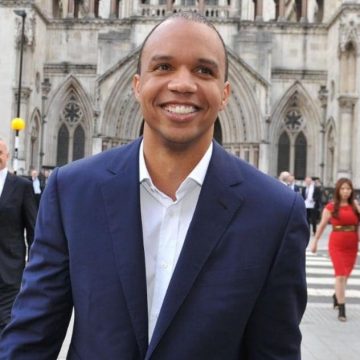
Phil Ivey’s final appeal before the UK Supreme Court will be heard on Thursday. The appeal stems from the £7.8 million baccarat lawsuit Phil Ivey filed against Crockfords Club.
Crockfords, a London casino owned by Genting Group, refused to pay Phil Ivey his £7.8m in winnings. They claimed he was edge-sorting, a tactic which gives a baccarat player an advantage over the casino.
Crockfords contends that edge sorting is a form of cheating, because the casino expects to have a house edge. For his part, Phil Ivey claims he gained an advantage through knowledge and skill.
How Did Phil Ivey Pull Off “Edge Sorting”?
Back in 2012, a Kansas City playing card manufacturer named Gemaco released a deck of purple cards which had an imperfection. Cards of a certain set of numbers had a flaw on the back of them, so they did not look like the rest of the cards in the deck. Someone who could spot those imperfections could sort the cards in a way that knowing gamblers would have a general idea of when to bet more on a winning hand.
Phil Ivey’s friend, Cheng Yin Sun, had a talent for spotting those cards. As a high roller, Phil Ivey could walk into many casinos and make certain requests of the casino. Because the casino wants the high stakes customers (and expects to win), they tolerate a wide range of requests.
In the Crockfords edge-sorting case, Phil Ivey asked for a purple set of Gemaco cards, a Chinese interpretor, and the ability to sort the cards before the game. Crockfords originally agreed to those requests. When Ivey and his friend won £7.8 million from the casino, Crockfords’s staff decided Ivey had cheated and refused to pay him.
Phil Ivey’s Crockfords Lawsuit
Phil Ivey sued Crockfords, but lost the lawsuit in 2014. In the meantime, Phil Ivey was sued by Borgata, who realized he had engaged in edge sorting, due to the publicity of the UK case.
Ivey appealed the original ruling, but lost that appeal in November 2016. He appealed the case to the last recourse, the UK Supreme Court. In February 2017, the UK Supreme Court agreed to hear Phil Ivey’s appeal.
Phil Ivey Statement on Crockfords Lawsuit
Phil Ivey said in a prepared statement earlier this week, “Last November’s Court of Appeal ruling made no sense to me. The original trial judge ruled that I was not dishonest and none of the three Appeal Court judges disagreed, and yet the decision went against me by a majority of 2 to 1.
“I am so pleased that the Supreme Court has granted me permission to fight for what I genuinely believe is right. I am hopeful that the Supreme Court will reverse the decision against me and that I will finally receive my winnings which I consider to be the just and proper outcome to this dispute.”
Section 42 of the Gambling Act
Matthew Dowd of Archerfield Partners LLP is one of the lawyer’s representing Phil Ivey in the Crockford’s case. Dowd said that the prior court decisions had left the meaning of Section 42 of the Gambling Act unclear, so he hoped the Supreme Court would rectify the sitaution.
Mr. Dowd said after hearing in February 2017 that the UK Supreme Court would hear the case, “Phil and his legal team are delighted that the Supreme Court judges have decided that the Court of Appeal’s decision should be reviewed.”
“The Court of Appeal’s ruling left the interpretation of Section 42 of the Gambling Act totally unclear and the decision to hear Phil’s appeal demonstrates that the Supreme Court agrees with that view.”
Borgata Lawsuit of Phil Ivey
The current Crockfords’ case playing out in the United Kingdom led to the more famous Borgata lawsuit in the United States, which also involves edge-sorting. In that case, Borgata sued Phil Ivey for the $9.6 million he won at the Atlantic City casino’s baccarat tables. Both cases involved high stakes baccarat sessions played in 2012.
It appears that Phil Ivey would have gotten away with his Borgata winnings, had it not been for his Crockfords lawsuit. When the UK case gained publicity, Borgata decided it was the victim of the same cheating tactics.
Edge Sorting in Atlantic City
The Borgata lawsuit against Phil Ivey described a similar situation to the Borgata case. In the Borgata baccarat sessions, Phil Ivey won several million dollars playing $50,000-a-hand baccarat. A couple of months later (in 2012), Borgata lured Phil Ivey and Cheng Yin Sun back to the casino and agreed to play for $100,000-a-hand. In this case, Ivey and Cheng won even more money.
Borgata eventually sued for $15 million, claiming they should have been paid for the $9.6 million and the winnings the casino should have made, based on the house edge. The judge thought the house edge argument was absurd, but granted Borgata $9.6 million plus comps on the casino markers offered to Phil Ivey.















